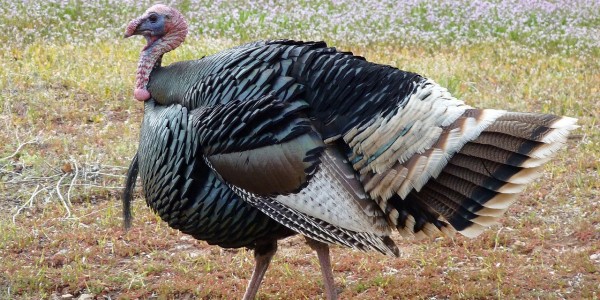Word of the Week: Turkey

According to the University of Illinois, between now and the end of the year Americans will eat almost 70 million turkeys for holiday meals alone. Whether or not you’ll be joining in the feasting, there is little doubt that you’ll see a lot of turkey before the year is up. But just because it’s a word you’ll see everywhere, don’t imagine that the word “turkey” is anything less than fascinating.
Turkeys are indigenous to the Americas, and before the Atlantic trade, people in the eastern hemisphere didn’t really have words for them, so many of the languages not indigenous to the Americas simply named turkeys from their supposed place of origin. In English we use the word “turkey” because English merchants believed (incorrectly) that the bird was closely related to a bird sold for many years by Turkish merchants. Ironically, people in Turkey used the word “hindi” believing (also incorrectly) that the birds came from India. This same mistake is behind the word for turkey in many other languages, including French and Russian. In turn, turkey in Hindi is called पीरू (Peru), deriving from the Portuguese name for the bird. In Arabic the word for “turkey” roughly means “bird from Rome.” Meanwhile, most indigenous American languages have their own much older names for “turkeys” (which, of course, can’t be traced to a goofy web of geographical mistakes), some of which influence names for “turkey” in different dialects of Spanish. Here are just a few of the many names for “turkey:”
Turkish: hindi
French: la dinde
Arabic: ديك رومي (dik rumiin)
Chinese (Mandarin): 火鸡 (Huǒ jī)
Hindi: पीरू (Peru)
Russian: индейка (indeyka)
Nahuatl: huehxōlōtl
(Incidentally, for facts like these or other turkey-related trivia, see the wikipedia page on turkey (bird).)

Great post.
Nice post!